So, you’re working on a project and need some parts for a Honda Accord. Finding the right Honda Accord wreckers can feel like a treasure hunt, right? You want good quality parts without breaking the bank. It’s not always easy to know where to start, but with a little know-how, you can find exactly what you need. We’ll walk through how to pick out the best Honda Accord wreckers for your next build.
Key Takeaways
- Focus on wreckers that specialize in Honda vehicles for better part compatibility and expertise.
- Be very specific about your Accord’s year, model, trim, and engine to get the correct parts.
- Compare online and local wrecking yards to find the best selection and pricing.
- Always check the condition of parts, ask about mileage, and look for testing or guarantees.
- Clear communication about your needs and understanding warranty terms are key to a smooth purchase.
Finding Specialized Honda Accord Wreckers
Understanding the Value of Honda-Specific Wreckers
When you’re hunting for parts for your Honda Accord, going with a wrecker that focuses specifically on Hondas makes a big difference. These places know their stuff when it comes to the Accord, from the older models to the newer ones. They understand the different engine types, like the K-series or J-series, and how they fit into various Accord generations. This specialized knowledge means they’re more likely to have the exact part you need and can tell you if it’ll work with your specific car. It cuts down on the guesswork and the frustration of getting the wrong component.
Benefits of a Focused Inventory
A wrecker that deals only in Hondas usually has a much wider selection of Accord parts compared to a general auto recycler. Think about it: instead of sifting through parts from every car make out there, they’re concentrating on Accords, Civics, CR-Vs, and other Honda models. This means they’re more likely to have that specific door panel, that particular headlight assembly, or even a complete engine for your project. Their inventory is curated for Honda enthusiasts and mechanics, so you’re more likely to find what you’re looking for without a lot of wasted time.
Expertise in Honda Platforms
These specialized wreckers aren’t just selling parts; they’re often run by people who are genuinely knowledgeable about Honda vehicles. They understand the nuances between different Accord model years, trim levels, and engine configurations. For example, they’ll know the subtle differences in body panels between a 2008 Accord and a 2010 Accord, or which transmission will bolt up to your specific engine. This kind of insight is incredibly helpful, especially if you’re working on a less common Accord variant or a classic model. They can often guide you to the right part, saving you from costly mistakes.
Dealing with a specialist means you’re more likely to get accurate information about part compatibility and condition, which is a huge plus when you’re trying to get your project back on the road.
| Component Type | Common Issues Addressed by Specialists |
|---|---|
| Engines | Correct series (K, J, etc.), VTEC function, ECU compatibility |
| Transmissions | Automatic vs. Manual, FWD vs. AWD fitment, torque converter condition |
| Body Panels | Year-specific styling, rust assessment, mounting point integrity |
| Interior | Trim color matching, switch functionality, seat wear |
| Suspension | Model-specific spring rates, bushing wear, ABS sensor compatibility |
Identifying Your Honda Accord Parts Needs

So, you’ve decided to tackle a project with a Honda Accord, which is a solid choice. But before you start calling up every salvage yard you can find, you really need to nail down exactly what you’re looking for. It’s not as simple as just saying ‘I need an engine.’ You’ve got to get specific, or you’ll end up with parts that don’t fit, don’t work, or aren’t what you expected at all. Think of it like ordering a custom meal – the more details you give the chef, the better the dish will turn out.
Specifying Vehicle Year and Model
This is the absolute first step. A Honda Accord from, say, 1998 is going to share very few parts with a 2018 model. Even within a few years, things can change significantly. You need to know the exact year and the specific model of your Accord. Is it a sedan, a coupe, or maybe a wagon if you’re dealing with an older generation? This information is the foundation for everything else.
Determining Trim and Engine Codes
Once you have the year and model, dig a little deeper. Honda offers different trim levels for the Accord, like the LX, EX, EX-L, or the sportier Si models. These trims often come with different features, interior materials, and sometimes even different engine options. You also need to know the engine code. For example, a K24 engine is different from a K20, and both are different from the older J-series V6 engines. Knowing these details helps the wrecker pinpoint the exact components you need, like the right alternator or the specific exhaust manifold.
Detailing Specific Part Requirements
Now, get down to the nitty-gritty. What exactly do you need? Are you looking for a complete engine, or just a specific sensor? Do you need a whole door assembly, or just the door handle? Be as precise as possible. If you need interior parts, mention the color and material – cloth seats versus leather, for instance. For body panels, specify if you need the front fender, rear bumper, or a specific trim piece. The more detail you provide, the less guesswork is involved for both you and the parts supplier.
It’s easy to get overwhelmed by all the options and variations. Taking a moment to gather all the necessary information about your specific Honda Accord before you start your search will save you a lot of time and frustration down the road. Think of it as a pre-flight check for your project.
Here’s a quick look at how different specs can matter:
| Feature | Example Specification | Impact on Parts |
|---|---|---|
| Year | 2007 | Different chassis, electrical systems |
| Model | Accord Sedan | Body panels, interior layout |
| Trim | EX-L | Premium features, different interior materials |
| Engine Code | K24Z3 | Engine components, ECU, sensors, exhaust |
| Transmission | Automatic (AT) | Transmission components, driveshafts, shifter cables |
| Body Style | 4-Door Sedan | Door panels, window regulators, exterior trim |
Navigating Online Versus Local Wreckers
When you need a part for your Honda Accord, you’ve got a couple of main routes to go: online specialists or your local salvage yard. Both have their upsides, and figuring out which is best for you really depends on what you’re looking for and how quickly you need it.
Online Honda Accord wreckers are pretty handy. They usually have big inventories that are easy to search through. You can often find exactly what you need without leaving your house, and they can ship parts all over the country. This wide reach means you might find a better deal or a rarer part than what’s available nearby. Plus, many online places have detailed descriptions and photos, which helps a lot.
Local wrecking yards, on the other hand, let you see the parts in person before you buy. This is a big plus if you want to check the condition yourself, maybe even test-fit something, or just grab it and go. Sometimes, you can find a real gem at a local yard, especially if you’re lucky and they just got a fresh delivery of Accords. It’s also good for the environment to support local businesses.
Sometimes, the best approach is to combine both. Start your search online to see what’s out there and get an idea of pricing. If you can’t find what you need or want to inspect it first, then check out your local yards. You might even find a local place that also sells online, giving you the best of both worlds.
It’s worth noting that online sellers might have more specialized knowledge about Honda Accords specifically, whereas a local yard might deal with all makes and models. This can make a difference when you need a very specific part or have questions about compatibility between different Accord years or trims.
Assessing Part Condition and Reliability
Understanding Part Grading Systems
When you’re looking at used parts, you’ll often see a grading system. This is how wreckers try to tell you how good a part is. Think of it like a report card for the component. Most places use a letter system, usually starting with ‘A’ for the best condition and going down from there. An ‘A’ grade part should look pretty clean, with minimal signs of wear and tear. A ‘B’ might have some cosmetic issues, like minor scratches or fading, but it should still work perfectly fine. A ‘C’ grade usually means the part is functional, but it’s definitely seen better days and will have noticeable wear. It’s always a good idea to ask what their specific grading means, as it can vary a bit between yards.
Inquiring About Donor Vehicle Mileage
Knowing how many miles the car the part came from had is pretty important. A part from a car with only 50,000 miles is likely to last a lot longer than one from a car with 200,000 miles. It gives you a better idea of the remaining lifespan of the component. Don’t be shy about asking for this information; it’s a standard question and helps you make a more informed decision about whether the part is worth the price.
Checking for Part Testing and Guarantees
This is where things get really serious. Some wreckers just pull a part and sell it as-is. Others go the extra mile. Ask if they’ve tested the part before putting it up for sale. For engines, this could mean compression tests. For electrical parts, it might be checking if they power up and function correctly. A good wrecker will often provide some kind of guarantee or warranty, even if it’s just for a short period, like 30 or 60 days. This gives you a safety net in case the part doesn’t work out once you install it. It shows they stand behind their products.
It’s easy to get caught up in just finding the right part at the lowest price. But if that part is worn out or doesn’t work, you’ve just wasted money and time. Taking a few extra minutes to ask about the part’s history, how it was tested, and what kind of guarantee comes with it can save you a lot of headaches down the road. Think of it as a small investment in making sure your project stays on track.
Common Honda Accord Parts Sourced from Wreckers
When you’re looking for parts for your Honda Accord, especially for a project, wreckers who focus on Hondas are a goldmine. They often have a good stock of the bits and pieces you might need, from the big stuff to the small details.
Engines and Drivetrain Components
This is usually the first thing people think of. You can find complete engines, like the reliable K-series or the V6 J-series, that have been pulled from Accords. It’s not just the whole engine, though; you can also get sub-assemblies like cylinder heads, engine blocks, or even just the intake manifolds. Things like alternators, starters, and various sensors are also common finds. Getting these parts from a specialized wrecker means they’re more likely to be the correct version for your specific Accord model and year.
Interior and Trim Pieces
Need to replace a cracked dashboard piece, a worn-out seat, or a faulty switch? Wreckers often have a good selection of interior parts. This includes things like door panels, center consoles, steering wheels, and even the little bits like air vents or climate control knobs. Finding the right color and material for seats or door cards can be a bit of a hunt, but a Honda specialist will know which years and trims are interchangeable.
Body Panels and Exterior Accessories
If your Accord has seen better days, body panels are a big draw from wreckers. Think about hoods, fenders, doors, and bumpers. Even smaller exterior bits like grilles, headlight assemblies, taillights, and side mirrors are frequently available. The advantage here is getting original equipment manufacturer (OEM) parts that are designed to fit your Accord perfectly, which can save a lot of hassle compared to aftermarket options.
Suspension and Braking Systems
For anyone working on the handling or stopping power of their Accord, wreckers are a great resource. You can find complete strut assemblies, shocks, springs, control arms, and bushings. When it comes to brakes, you can often source calipers, rotors, and brake backing plates. Knowing the specific setup for your Accord, like whether it has ABS or a particular suspension package, is key, and a specialized wrecker can help confirm this.
Sourcing parts from a wrecker means you’re often getting original equipment that’s been removed from a vehicle. While these parts have been used, a good wrecker will have inspected them, and sometimes even tested them, to give you a better idea of their remaining lifespan. It’s always a good idea to ask about the condition and any testing that’s been done before you buy.
Key Considerations When Choosing Honda Accord Wreckers
So, you’ve figured out exactly which part you need for your Honda Accord project. That’s a big step! Now comes the part where you actually find the wrecker who has it and is worth your time and money. It’s not just about finding a part; it’s about finding the right part from a place you can trust.
You really want to make sure the wrecker knows their Hondas, especially Accords. They should have a good stock of parts for your specific year and model. It’s also super important to understand how they grade their parts. Some places might say a part is ‘good’ when it’s really seen better days. Asking about the mileage on the car the part came from can give you a clue about how much life is left in it. And don’t forget to ask if they test their parts or offer any kind of guarantee. That can save you a lot of headaches down the road.
When you’re looking at different wrecking yards, check out how deep their inventory goes. If they have a lot of Accords from various years, you’re more likely to find what you need. Also, pay attention to their grading system. Is it clear what an ‘A’ grade part means versus a ‘B’ grade? Transparency here is key. You’ll also want to know about their shipping options if you’re not picking up in person, and what their warranty terms are. Some places might even offer a bit of technical help if you get stuck during installation, which is a nice bonus.
It’s always a good idea to get as much information as you can before you buy. Asking for detailed photos of the actual part, not just a stock image, can really help you spot any hidden damage or wear. Also, clarify their return policy upfront. You don’t want any surprises if the part doesn’t fit or work as expected.
Think about how easy it is to get in touch with them too. Can you call them and talk to someone who actually knows about Honda parts? Or is it just an online form with no real support? Good customer feedback or reviews can also point you in the right direction. It’s all about making sure you’re getting a quality part without any unnecessary hassle.
Ensuring a Smooth Transaction with Honda Accord Wreckers

Communicating Part Specifications Clearly
When you reach out to a wrecker, be ready with all the details about your Honda Accord. Giving them the exact year, model, and even the VIN can make a big difference. Don’t forget to mention the trim level and any specific engine codes you know. For example, saying you need a part for a “2015 Honda Accord EX-L with the 3.5L V6” is much better than just “Accord part.” This helps them pull the right item from their inventory and avoids mix-ups.
Requesting Detailed Photos and Inspections
It’s always a good idea to ask for pictures of the actual part you’re considering. Request close-ups of any areas that might show wear, like mounting points or electrical connectors. If you can, ask about the condition of the donor vehicle itself. Knowing if it had a front-end collision or if it was a high-mileage car can give you clues about the part’s history.
Clarifying Warranty and Return Policies
Before you pay, make sure you understand the wrecker’s policy on warranties and returns. Most reputable places will offer some kind of guarantee, maybe 30 or 60 days, especially on major components like engines or transmissions. Ask what happens if the part doesn’t work or if it’s faulty. Knowing the return process and any associated fees upfront can save you a lot of hassle later.
Preparing for Logistics and Potential Core Charges
Think about how you’ll get the part. If it’s a large item like an engine or transmission, you’ll need to arrange shipping or pickup. Also, be aware that some parts, like alternators or starters, might have a “core charge.” This is an extra fee you pay upfront, which you get back when you return your old, worn-out part. It’s good to have this factored into your budget.
Wrapping Up Your Honda Accord Project
So, when you’re looking for parts for your next Honda Accord project, remember that specialized wreckers are your best bet. They know Hondas inside and out, which means you’re more likely to find exactly what you need. Plus, going with used parts is good for your wallet and the planet. Take your time, do a little digging, and you’ll find those quality components to get your Accord back on the road or finished for that show.


